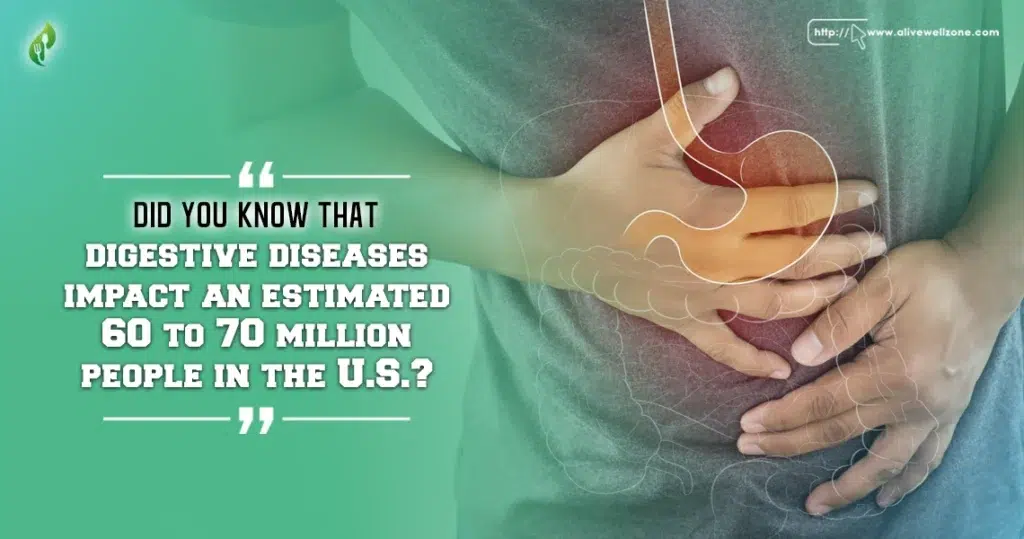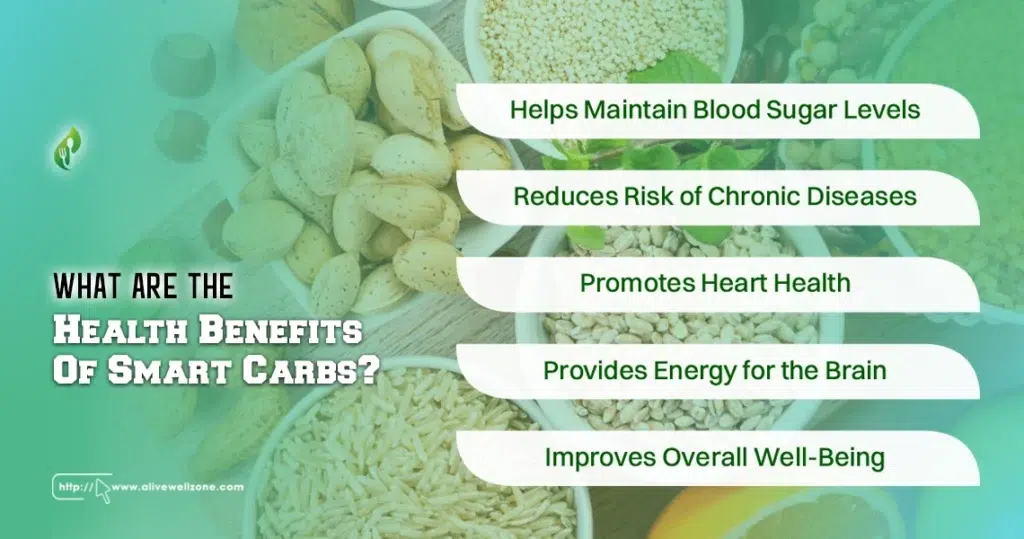
Last Updated on November 19, 2024 by Helena Akter
How’s your weight loss going? Have you cut out carbs? Have you tried everything, but the scale seems stuck?
Well, the struggle is real and pretty disappointing. What if the solution isn’t to cut carbs, but to choose the right ones? It’s here where smart carbs come in. But, how do smart carbs help with weight loss?
Smart carbs help you lose weight by keeping your blood sugar steady, making you feel full, improving your digestion, and having a lower calorie density. These benefits make smart carbs a good choice for your health and weight management in the long run.
Moreover, there is science behind smart carbs that we’ll explain later on and give you tips on how to include them. Also, we’ll show you how these simple changes can jumpstart your weight loss journey. So, change the way you see carbs and get closer to losing weight.
What Are Smart Carbs?
Smart carbs, sometimes called complex carbs, are carb sources packed with nutrients. They give you long-lasting energy, fiber, vitamins, minerals, and antioxidants. These carbs are barely processed and come with a bunch of health perks.
What are the Examples of Smart Carbs?
Smart carbs give you more than just energy. They’re loaded with fiber, vitamins, minerals, and antioxidants. Let’s look at some examples of smart carbs for weight loss —
Fruits
Fruits are like nature’s candy, sweet and full of important nutrients. They’re high in fiber, which gives you energy. In fact, a review of various studies showed that for every serving of fruit you eat daily, you cut your heart disease risk by 7%.
So, start enjoying fruits like —
- Strawberries
- Raspberries
- Blueberries
- Apples
- Bananas
- Oranges
- Pears
- Kiwifruit
These are all smart carbs.
Whole Grains
Whole grains are just that – whole. They include all parts of the grain — the bran, germ, and endosperm. Foods like —
- Oats
- Brown rice
- Quinoa
- Bulgur
- Barley
- Whole wheat, are all whole grains
They’re full of fiber, minerals, vitamins, and antioxidants, giving you long-lasting energy and helping your digestion and blood sugar control.
Vegetables
Vegetables, especially non-starchy ones, are an excellent source of smart carbs. They’re low in calories and carbs but high in fiber, vitamins, minerals, and phytonutrients.
According to the Journal of the National Cancer Institute, while all fruits and veggies are good for you, green leafy ones are linked to a lower risk of heart disease. Some leafy greens like —

- Kale
- Spinach
- Lettuce
- Swiss chard
Cruciferous veggies like —
- Cauliflower
- Broccoli
- Brussels sprouts
Root veggies like—
- Sweet potatoes
- Carrots
- Beets
- Bell peppers are all smart carbs
Legumes
Legumes are a type of vegetable that includes beans, lentils, peas, and soybeans. They’re rich in both carbs and protein, making them a unique kind of smart carb.
Plus, black beans, kidney beans, chickpeas, and other legumes are great sources of vitamins, fiber, minerals, and plant-based protein. They help you feel full, repair muscles, and stay healthy.
Whole Grain Products
Products made from whole grains, like whole grain pasta, cereals, bread, and crackers, are also smart carbs. They’re made from grains that have been minimally processed, keeping their fiber and nutrient content intact.
When you’re shopping for these products, make sure that whole grains are listed as the first ingredient. It ensures you’re getting a product that’s truly whole grain.
How Do Smart Carbs Help with Weight Loss?

Smart carbs can be a game-changer in your weight loss journey. Here’s how —
Stable Blood Sugar Levels
Smart carbs are full of fiber, which slows down how your body digests and absorbs carbs. This means glucose is released into your bloodstream slowly and steadily, helping you avoid sudden highs and lows in your blood sugar levels.
Also, it can help you resist cravings for high-calorie, sugary foods that can lead to weight gain.
Feeling Full and Satisfied
As we just mentioned they’re usually high in fiber, which can help you feel full and satisfied after meals. It can help you avoid overeating and snacking between meals. Hence, you can easily maintain a calorie deficit while following great tips for weight loss.
Better Digestive Health
Did you know that digestive diseases impact an estimated 60 to 70 million people in the U.S.? Well, smart carbs can protect you from digestive issues. They provide fiber, which helps digestion, prevents constipation, and supports regular bowel movements.

Besides, a healthy digestive system ensures optimal nutrient absorption and metabolism, which help you control your weight.
Lower Caloric Density
Unlike processed carbs, smart carbs like fruits, vegetables, and whole grains are low in calories. Basically, you can eat more of these foods without consuming too many calories, so you don’t overeat.
Sustainable in the Long Run
Smart carbs for weight loss are part of a balanced diet that includes a variety of nutritious foods. Unlike fad diets that cut out entire food groups, a diet rich in smart carbs is more sustainable over time.
This makes it easier for you to keep the weight off and reach your overall health goals. Meanwhile, you can implement the best diet tips for weight loss to stay one step ahead.
Packed with Nutrients
There are a lot of vitamins, minerals, and antioxidants in smart carbs. They provide essential nutrients that support your overall health and well-being. By choosing nutrient-dense smart carbs over refined and processed carbs, you’re not just managing your weight, you’re also nourishing your body.
What is the Difference Between Smart Carbs & Carbs?
When it comes to carbohydrates, not all are created equal. There are those we call carbs and then there are smart carbs. But what sets them apart?
Here’s a simple comparison —
| Aspects | Carbs | Smart Carbs |
| Nutritional Composition | Carbs are a type of macronutrient found in a variety of foods like grains, fruits, vegetables, legumes, and dairy. | Smart carbs are carbohydrate-rich foods that are packed with nutrients. |
| Composition | They’re made up of sugar molecules and serve as a primary energy source for the body. | They’re high in fiber, vitamins, minerals, and antioxidants. |
| Source of Energy | Provides quick energy as they are easily broken down into glucose. | Offers sustained energy due to their high fiber content which slows down the release of glucose. |
| Fiber Content | Regular carbs, especially refined ones, often lack fiber. | Smart carbs are typically high in fiber, which aids in digestion and keeps you feeling full longer. |
| Vitamin and Mineral Content | Lose their vitamin and mineral content during processing. | Rich in vitamins and minerals, contributing to a well-rounded diet. |
| Antioxidant Content | Generally have lower antioxidant content. | Contains higher levels of antioxidants which can help fight off harmful free radicals in the body. |
| Impact on Blood Sugar Levels | Causes a rapid spike in blood sugar levels. | Smart carbs have a lower glycemic index, causing a slower and more steady rise in blood sugar levels. |
| Weight Gain | Regular carbs can contribute to weight gain. | Smart carbs support weight management. |
| Chronic Diseases | Can increase the risk of chronic diseases like obesity, type 2 diabetes, and heart disease. | Reduces the risk of these chronic diseases. |
| Overall Well-being | Negatively impacts overall well-being. | Promotes overall well-being by providing essential nutrients and offering health benefits. |
What are the Health Benefits Of Smart Carbs?

Smart carbs do more than just help you manage your weight. They also offer a variety of health benefits that can improve your overall health.
Here are some key benefits —
Helps Maintain Blood Sugar Levels
The fiber in smart carbs slows down the absorption of glucose into your bloodstream. This leads to more stable blood sugar levels. It can also reduce the risk of insulin resistance, type 2 diabetes, and metabolic syndrome by improving insulin sensitivity and promoting better blood sugar control.
Reduces Risk of Chronic Diseases
Adding smart carbs to a balanced diet can lower the risk of chronic diseases like obesity, heart disease, type 2 diabetes, and certain cancers. The fiber, vitamins, minerals, and antioxidants in smart carbs provide valuable nutrients.
Thus, they protect you from oxidative stress, inflammation, and cellular damage.
Promotes Heart Health
Smart carbs, particularly those rich in soluble fiber like oats, legumes, and fruits, can help lower LDL (bad) cholesterol levels. It reduces the risk of heart disease as soluble fiber binds to cholesterol in the digestive tract, preventing its absorption and promoting its excretion.
Moreover, there are heart-healthy foods that you can add to your diet for increased safety.
Provides Energy for the Brain
According to a study, carbs are the main source of energy for the brain. Even though the brain only makes up 2% of our body weight, it uses up 20% of the energy we get from carbs.

Carbohydrates are vital for fueling your brain and central nervous system. If you’ve ever felt foggy or had trouble concentrating while on a low-carb diet, it’s likely because you weren’t getting enough smart carbs.
Improves Overall Well-Being
Smart carbs provide vital nutrients that support various body functions, including immune function, cognitive function, and cardiovascular health. By including smart carbs in a balanced diet, you can improve your overall health and well-being, leading to better vitality and quality of life
How to Choose Your Smart Carbs?
Choosing the right carbs can make a big difference in your health and weight loss journey. Here are some smarter carb choices —
- Oats: A great source of fiber and can help control blood sugar levels.
- Legumes: Beans, lentils, and split peas are rich in protein and fiber.
- Breads: Opt for mixed grain, wholemeal, dark rye, or linseed and soy.
- Cereals: Choose whole grain, bran, or high fiber options.
- Pasta and Noodles: A good source of energy, just watch your portion sizes.
- Starchy Vegetables: Corn, peas, carrots, sweet potatoes, and others are nutrient-dense.
- Rice: Basmati or Doongara are good options.
The less recommended are —
- Potato: It’s high GI, so it can spike your blood sugar levels.
- Cereals: Try to avoid refined rolled or flaked types.
- Couscous, Polenta: These are fine in moderation, but they’re not as nutrient-dense as other options.
- Rice: Calrose or jasmine rice are less recommended due to their higher GI.
- Bread: White bread, including lavash flatbreads and tortillas, are less nutritious than whole-grain options.
How to Make Smart Carb Swaps?
Choosing carbs? You’ve got a great chance to pick healthier options. Here are some easy swaps to get healthy carbs into your meals —
- Breakfast: Start your day with some oatmeal topped with your favorite fruits.
- Lunch: Give your salad some crunch with roasted chickpeas instead of croutons.
- Snacks: Pick whole fruits over fruit juice for a snack full of fiber. Swap that bag of potato chips with fresh popcorn sprinkled with your favourite spices and herbs.
- Dinner: Try a baked sweet potato instead of a bowl of pasta for a meal packed with nutrients.
- Dessert: Replace candy bars with homemade energy balls made from nut butter, oats, honey, and dried fruit.
- Yogurt: Choose plain yogurt and add your own fruit for a touch of sweetness, instead of buying pre-sweetened varieties.
Why Should You Consider Avoiding Modern Carbohydrates?
Modern carbohydrates, such as white bread, white rice, potatoes, and numerous breakfast cereals, might not be as beneficial as you think. Here’s why —
- These carbs are often refined, meaning they’ve lost a significant portion of their original nutrients.
- They’re packed with energy. For instance, 100 grams of boiled white rice contains 490 kJ, which is more than full-fat yogurt (390 kJ) and significantly more than oranges (180 kJ).
- These foods are low in fiber, an essential nutrient for digestion.
- They don’t make you feel full, leading to easy overeating.
- They often serve as a ‘vehicle’ for fats. Consider the amount of oil, cheese, or cream you can add to mashed potatoes or fried rice, or the butter you can spread on bread.
- These carbs are quickly digested and absorbed, causing rapid spikes in blood sugar levels.
- Many of these foods, like biscuits, croissants, doughnuts, and potato chips, contain a lot of ‘hidden fats’.
Final Words of how do smart carbs help with weight loss
How do smart carbs help with weight loss?? Well, smart carbs, like whole grains, fruits, and vegetables, keep your blood sugar steady and make you feel full. This helps you manage your weight effectively.
Here, choosing the right carbs is key. Think about replacing refined carbs with smarter ones. It can give you long-lasting energy and improve your digestion. Plus, stay away from regular carbs that can raise your blood sugar and lead to weight gain. Instead, choose options that support a healthy lifestyle.
Finally, adding smart carbs to your diet doesn’t have to be hard. Start with easy changes and slowly add these healthier options to your meals. By doing this, you’ll get the benefits of a balanced diet that supports not just weight loss, but also your long-term health.
FAQs of how do smart carbs help with weight loss
How much smart carbs do you need to be eating?
Males should consume two cupped handful-sized portions of smart carbs per meal (about 1 cup), while females should consume one cupped handful-sized portion (about 1/2 cup). It helps maintain energy and manage weight effectively.
Why do the wrong carbs make us fat?
The wrong carbs make us fat because they are quickly digested, causing a surge in blood sugar and a rapid insulin response. This cycle can lead to increased hunger and overeating, particularly with refined foods like white bread and rice.







